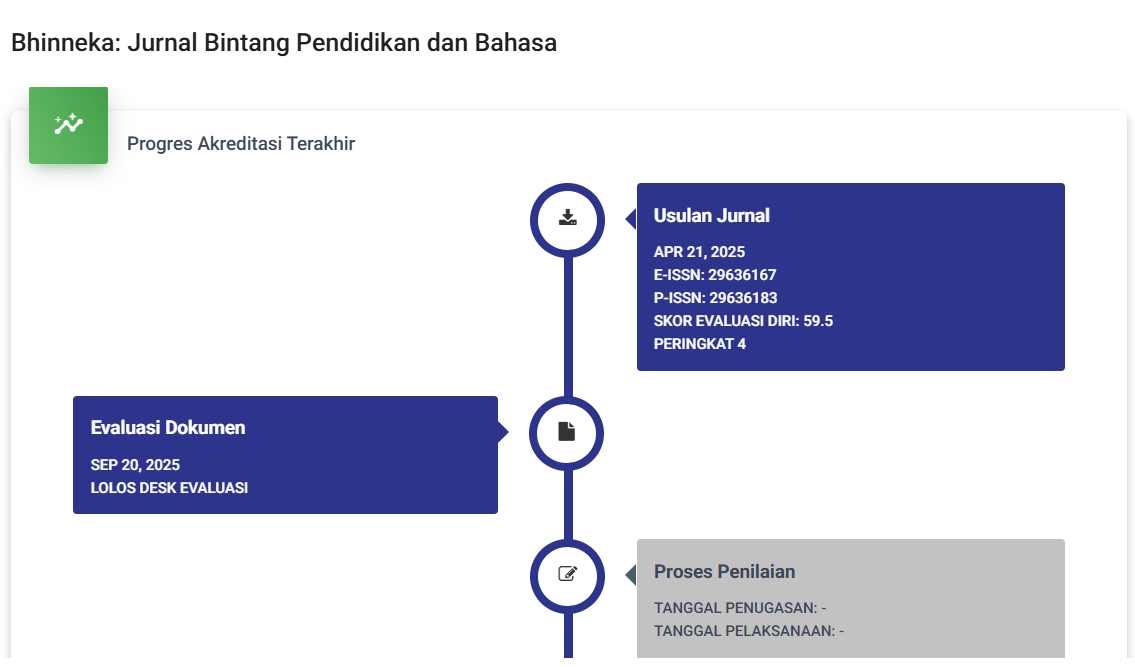Dampak Pembelajaran Digital Terhadap Peserta Didik
DOI:
https://doi.org/10.59024/bhinneka.v3i1.1150Keywords:
Digital Learning, Learning Outcome, StudentsAbstract
Digital technology has had a big impact on the world of education today. Some of the positive and negative impacts of digital technology on education are: 1) Making it easier to find information. Digital technology allows students and teachers to access information and educational resources more easily and quickly. 2) Increase creativity. Digital technology allows students to develop their own potential and find out how to develop that potential. 3) Global collaboration, Students can collaborate with other students around the world via online platforms, so they can bring a global perspective to their learning. 4) Efficiency. Digital technology allows teachers to provide services without having to deal directly with students, thereby increasing efficiency in the learning process. Negative impacts: 1) Digital divide, The COVID-19 pandemic has highlighted the digital divide that exists in access to technology among students. Many students do not have access to the devices and internet necessary for distance learning. 2) Lack of focus. The amount of interesting information through digital technology makes students less focused on learning. 3) Education without character. Students prefer to explore cyberspace with various interesting information presented, so they pay less attention to the character and values taught at school. 4) Spread of pornography: Technological advances also have negative impacts such as the spread of pornography among students which will damage the morals of the current generation of teenagers.
References
Agnia, Furnamasari, Y. F., & Dewi, D. A. 2021. Pengaruh kemajuan teknologi terhadap pembentukan karakter. Jurnal Pendidikan, 5(3), 9331–9335.
Anisah, A. S. 2011. Pola asuh orang tua dan implikasinya terhadap pembentukan karakter anak. Jurnal Pendidikan Universitas Garut, 5(1), 70–84.
Annisa, E. 2021. Peranan orang tua dalam pengembangan literasi dini selama COVID-19 pada anak usia 5-6 tahun. Cakrawala Pendidikan, 15(1), 1–17.
Asmani, J. M. 2011. Buku panduan internalisasi pendidikan karakter di sekolah. Yogyakarta: Diva Press.
Charke-Stewart. 1987. Child development: Through adolescence. United States of America.
Dimyati, Mudjiono. 2009. Belajar dan Pembelajaran. Jakarta: Rineka Cipta
Gulo, W. 2002. Strategi Belajar Mengajar. Jakarta: Grasindo.
Helmi, A., & Urrohmatul. 2022. Peran apresiasi orang tua terhadap pembentukan karakter siswa madrasah ibtidaiyah. Jurnal Pendidikan, 6(4), 7368–7376.
Iskandarwassid, Dadang Sunendar. 2009. Strategi Pembelajaran Bahasa. Bandung: Remaja Rosdakarya.
Koesoema, D. A. 2007. Pendidikan karakter: Strategi mendidik anak di zaman modern. Jakarta: Grasindo.
Malikah. 2013. Kesadaran diri proses pembentukan karakter Islam. Jurnal Al-Ulum, 13(1), 129–140.
Pringgawidagda, Suwarna. 2002. Strategi Penguasaan Berbahasa. Yogyakarta: Adicita Karya Nusa.
Pusat Bahasa Nasional. 2008. Kamus Besar Bahasa Indonesia. Jakarta: Pusat Bahasa.
Ryan, K., & Bohlin, K. E. 1999. Building character in schools: Practical ways to bring moral instruction to life. San Francisco: Jossey-Bass.
Samrin. 2016. Pendidikan karakter (Sebuah pendekatan nilai). Jurnal Pendidikan, 9(1), 120–143.
Tarigan, Henry Guntur. 2008. Menyimak Sebagai Suatu Keterampilan Berbahasa. Bandung: Angkasa.
Downloads
Published
How to Cite
Issue
Section
License
Copyright (c) 2024 Bhinneka: Jurnal Bintang Pendidikan dan Bahasa

This work is licensed under a Creative Commons Attribution-ShareAlike 4.0 International License.








